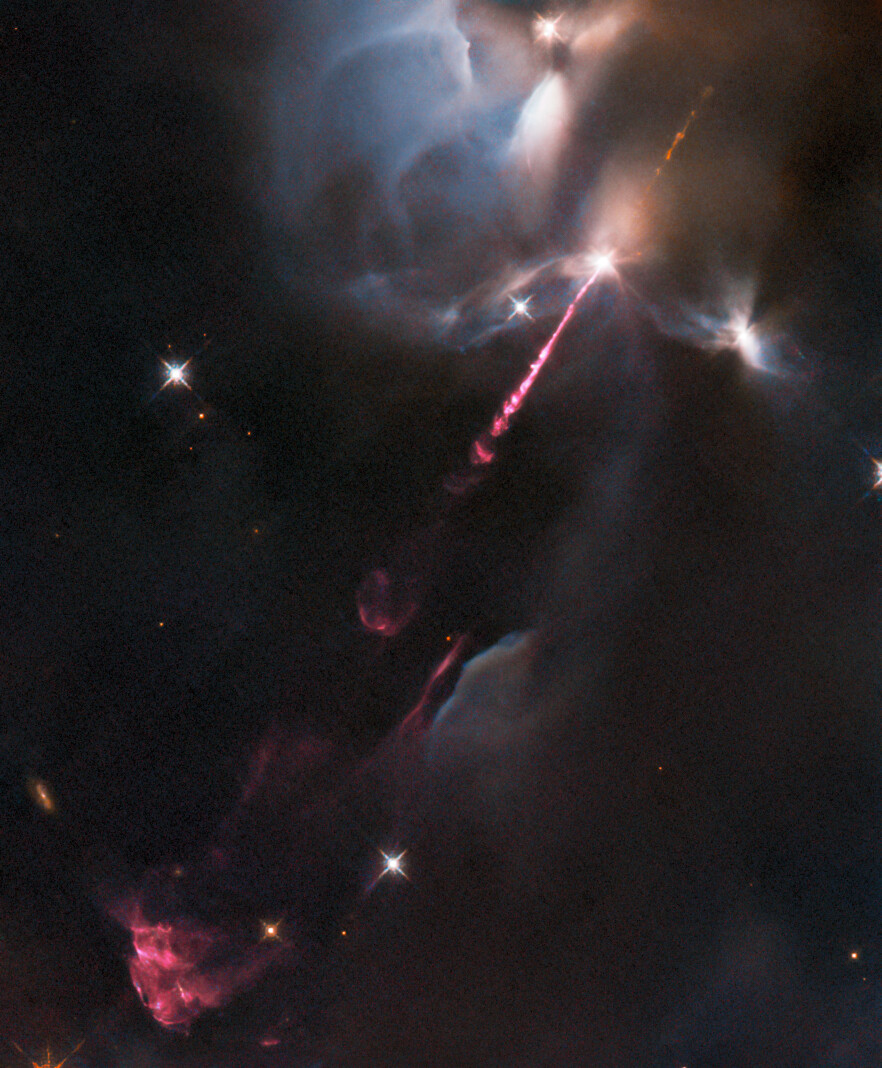Hubble captures energetic outburst from infant star

The NASA/ESA Hubble Space Telescope has captured a stunning image of an energetic outburst from a very young star, resulting in a colourful wispy structure called Herbig–Haro objects.
The image shared by the European Space Agency shows a stellar tantrum produced by an extremely young star in the earliest phase of formation. It consists of an incandescent jet of gas travelling at high speeds. As this jet collides with the material surrounding the infant star, the shock heats this material and causes it to glow.
In the lower left of this image, you can see this object, Herbig-Haro 34 (HH34), that resides approximately 1250 light-years from Earth in the Orion Nebula, one of the closest sites of widespread star formation to Earth. According to ESA, these objects are seen to evolve and change significantly over just a few years.
📷 A NASA/ESA @HUBBLE_space image of a jet of gas travelling at high speed from a very young star, resulting in a wispy structure known as a 'Herbig–Haro' object (HH34), seen at lower left. These objects can evolve significantly over just a few years 👉 https://t.co/etSLv1WHGD pic.twitter.com/i025vmbhFN
— ESA (@esa) March 7, 2022
The data in this image are from a set of Hubble observations of four nearby bright jets with the Wide Field Camera 3 taken to help pave the way for future science with the newly-launched James Webb Space Telescope. The high-resolution images of the stellar jet HH34 and other Herbig-Haro objects captured by Hubble will help astronomers interpret future observations with Webb.
Touted as the world's most powerful space science observatory, Webb was launched in December 2021 and the telescope reached its destination, Lagrange point 2, on January 24, 2022. Webb will solve mysteries in our solar system, look beyond to distant worlds around other stars, and probe the mysterious structures and origins of our universe and our place in it.










